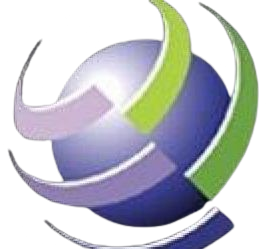14th IFIP Working Group 9.4 Conference on the Implications of Information and Communication Technologies for Development
ICTS FOR PROMOTING SOCIAL HARMONY: TOWARDS A SUSTAINABLE INFORMATION SOCIETY

Location: Yogyakarta, Indonesia, May 2017
The Working Group 9.4 of the International Federation for Information Processing (IFIP) gathers scholars and practitioners that deal with the issue on how ICT affects social development. In the last three decades and particularly, in the 21st century, ICT have been viewed as pertinent for social development given their role in assisting in bringing development to areas affected by natural disasters such as, the Haiti and Nepal earthquakes and the Arab Spring revolutions. Due to their pertinent role, ICT related research has been attracting scholars from information systems and a variety of other areas such as development studies, public administration, political science, political economy, social anthropology, and sociology.
The theme of the IFIP WG 9.4 2017 conference is: ICTs for promoting social harmony: Towards a sustainable information society. A harmonious society is viewed to be a peaceful and balanced ‘connected whole’ in a transformed social dynamics where there is a sustainable exchange of resources and development taking place through mutual agreements. As ‘all problems of existence are essentially problems of harmony’, the goal of development is apparently not only to ensure social harmony, but also to minimize the elements that undermine or disrupt the ‘connected whole’. Ideally, the information society is seen as a ‘classless and conflictless’ inclusive community, which strives to use technologies to diminish structural barriers, democratize information, balance between power and dependency, and transform human values. However, in reality, it faces several challenges of, for example, political and religious extremism, infringement of privacy and security, disparity of wealth and social disconnection. As we are unavoidably intermingling towards the complex environment of information society, we need to critically investigate the ‘social construction’ role of information technology especially in the contexts of peace and conflict, cooperation, and development of human capital for creating a ‘sustainable world’.
To address and emphasise this issue, we however welcome contributions from a wide range of perspectives, for example, public administration, entrepreneurship, business administration, information technology for development, information management/systems, philosophy, or management amongst other disciplines.
Conference tracks
We invite those interested in participating to submit to one of the following tracks:
- Perspectives on Large Scale and Complex Information Systems for Development: Ecosystems, Architectures and Platforms
- Women Empowerment and Gender Justice: Social Harmony and/or Social Change?
- Unravelling Social Mechanisms of ICT-enabled Development: What is Development and How Can ICT Enable It?
- The Data Revolution and Sustainable Development Goals
- Critical Perspectives on ICT and Open Innovation for Development
- The Contribution of Practice Theories to ICT for Development
- Agile Development
- Indigenous and Local Community Grounded ICT Developments
- Global Sourcing and Development
- Sustainability in ICT4D
- Information Systems Development and Implementation in Southeast Asia
- IPID and Graduate Student Track
- ICT4D Project Governance
- General
